What is “karoshi”, or Why do Japanese people die at work?
Categories: Asia | Health and Medicine | Society
By Pictolic https://pictolic.com/article/what-is-karoshi-or-why-do-japanese-people-die-at-work.htmlIn the 70s, Japan encountered a new, previously unknown phenomenon called “karoshi”. This is what the Japanese call death that occurs as a result of overwork and stress. Every year there were more and more such cases. In 2020, 1,918 cases were registered, which included not only deaths from overwork, but also suicides associated with problems at work. Why is this happening and why in Japan?
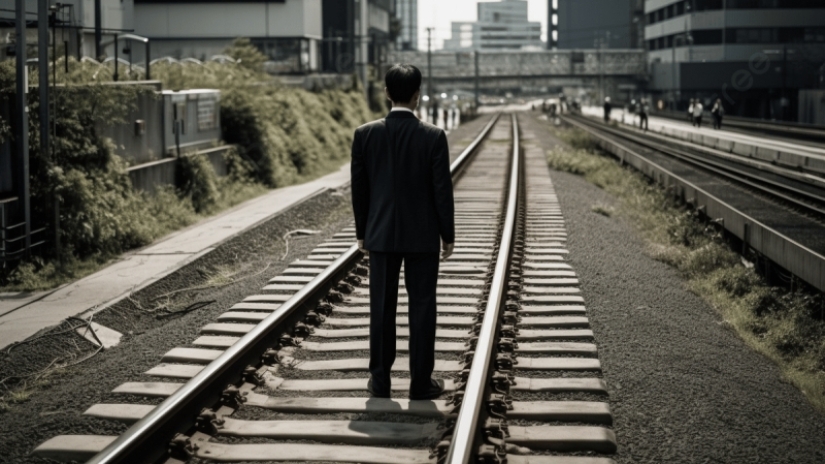
In the Land of the Rising Sun there is a wonderful holiday - Labor Appreciation Day. It is celebrated on November 23, expressing gratitude to each other for good work and contributions to society. In 2019, a ceremony was also held on this day to “mourn unused paid vacations,” according to Buddhist rites. For this event, 300 lanterns were prepared, in which the Japanese placed messages.
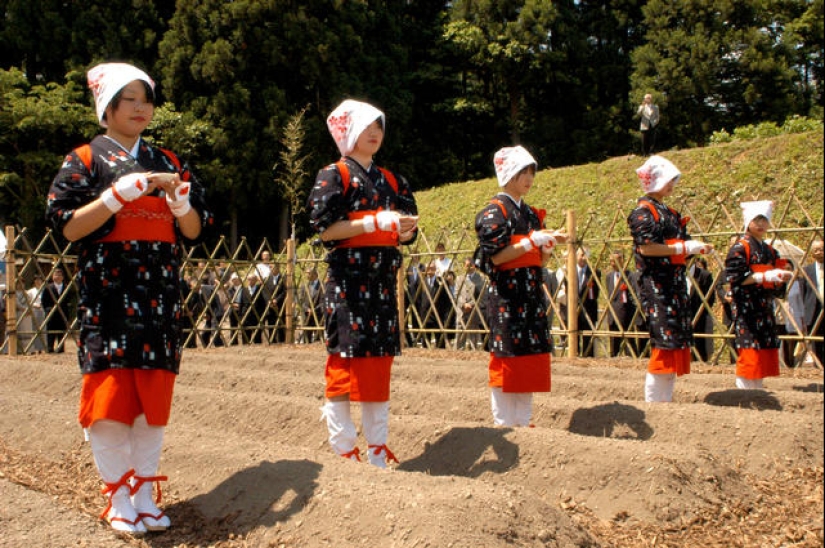
In one of them, a 30-year-old woman said that because of work, she had to move her daughter’s birthday from May to December. But what is most striking is the story of one friendship:
The event was organized by Ningen Inc. According to their plan, the lanterns symbolized the souls of unused vacations. They were first “mourned” and then “purified.” For this purpose, a real Buddhist clergyman was invited. The creative director of the company that organized the holiday, Shiboru Yaname, briefly described his idea to reporters:
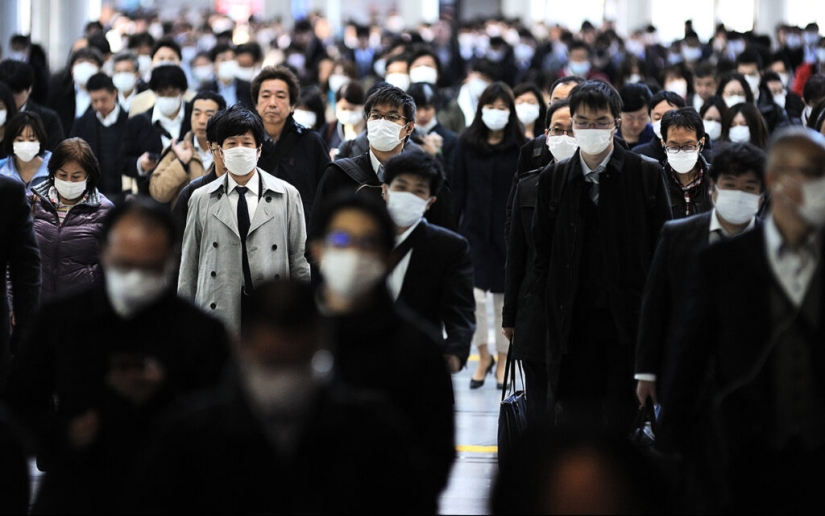
The Japanese have long ago found the origins of the problem. Hiroshi Ono, a professor at Hitotsubashi University, specializes in the study of national work culture. He said that overwork and refusal to rest are a legacy of the Showa era. This was the reign of Emperor Hirohito, lasting from 1926 to 1989. For Japan it was a time of turmoil and major defeats.
The country learned what defeat in the war, mass famine, as well as the atomic bombings of Hiroshima and Nagasaki meant. In the 1950s, the “Japanese economic miracle” began to emerge. The phenomenal growth of the economy after the signing of the act of surrender was not, in fact, “magic.”
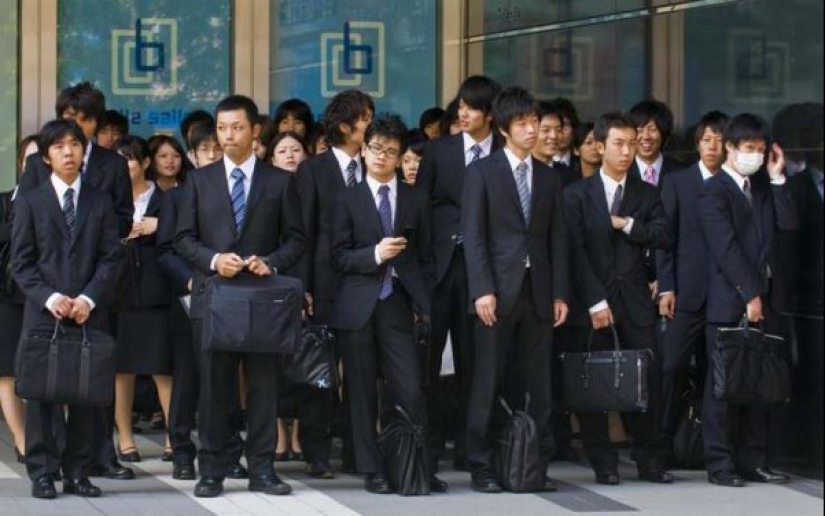
People understood that they could only pull themselves out of the abyss of defeat on their own. And there was only one way to achieve this - to work like crazy and never stop. Gradually, this idea became national and the inhabitants of the Japanese islands could no longer live.
In the 1950s, the concept of “lifetime employment” was born in Japan. It was actively promoted by Prime Minister Shigeru Yoshida. It consisted in the fact that a person moved up the career ladder and acquired all the skills in one company. That is, it was assumed that the employee comes to the company and works in it until retirement. At the same time, a culture of overtime work appeared, for the benefit of the “native” corporation.

Leaving work before a steel manager has become a sign of bad taste. But staying at the workplace on your own initiative for a couple of hours has become the norm. The first death from overwork at work was recorded in 1969. Then the man died in the office from a stroke. And already in the early 70s there were so many such deaths that a special term had to be introduced - “karoshi”. This word means death associated with overwork or stress, including suicide.
In 2011, there were 2,689 suicides in Japan due to problems at work. Statistics from 2015 say that most deaths related to fatigue or stress are caused by heart failure or strokes. These people worked more than 80 overtime hours per month. For suicides, this figure reached 100 hours.

One Japanese engineer, speaking on condition of anonymity, told a BBC journalist that in 2019 he only had two days of vacation. At the same time, according to the law, he had the right to 20 days of rest. But a long vacation for a Japanese is always bad. The engineer described the situation this way:

Professor Hiroshi Ono says that such a situation is impossible in Europe. This is because Japanese society is collectivist and hierarchical, while Western society is individualistic and non-hierarchical. Many Japanese do not take vacations only because their managers refuse to take vacations. They are afraid that if they do not support their boss, they will disrupt the harmony in the work team and show their disrespect.
The Japanese government does not approve of this approach. The problem drew close attention in 2015, after the suicide of the girl Matsuri Takahashi. She graduated from the University of Tokyo and got a job at Dentsu. In 8 months she worked 108 hours. The Japanese woman wrote on Twitter that she was in the office 20 hours a day. She complained that she didn’t know why she lived and that she had forgotten how to smile.

On December 25, 2015, Christmas Day, Matsuri committed suicide. This was not the first time this had happened at Dentsu. In 1991, a young employee committed suicide there. The case was heard in court, and the authorities ordered the company's managers to change working conditions. Unfortunately, nothing has changed for workers. The death of Matsuri Takahashi caused a stir. The situation was brought under control by the authorities. As a result, Dentsu President Tadashi Ishii resigned. He publicly stated that overtime is evil and should not be allowed.
Japan has begun to seriously reconsider its work culture. As a result, the work regime reform law was introduced in 2018. He obliged employers to monitor employees’ schedules and create comfortable working conditions for them. In addition, companies were required to pay for forced overtime.
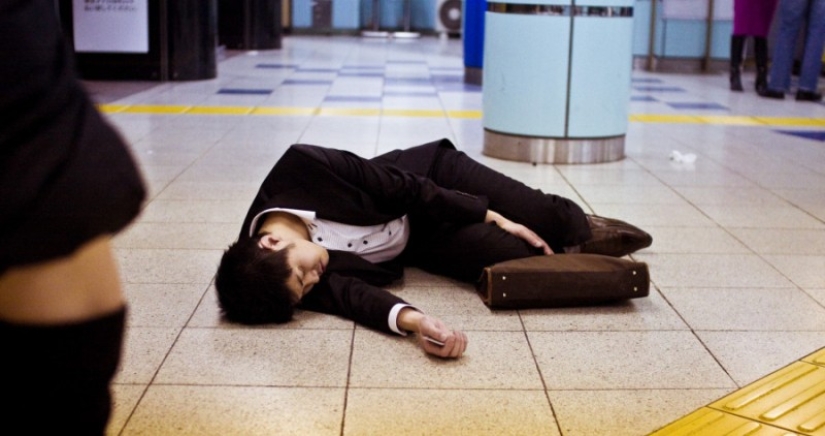
In 2016, the Federation of Businesses, with the support of the government, launched the Premium Friday campaign. She assumed that on every last Friday of the month, company employees could go home at 15.00. Corporations were hostile to the innovation. 45 percent of companies said they have no plans to participate. The campaign launched in 2017, but two years later it became clear that it had gone unnoticed.
One example of karoshi, which we have already written about, is the case when NHK journalist Zhiva Sado died. In just one month, she worked 159 hours.
Recent articles

It's high time to admit that this whole hipster idea has gone too far. The concept has become so popular that even restaurants have ...

There is a perception that people only use 10% of their brain potential. But the heroes of our review, apparently, found a way to ...

New Year's is a time to surprise and delight loved ones not only with gifts but also with a unique presentation of the holiday ...